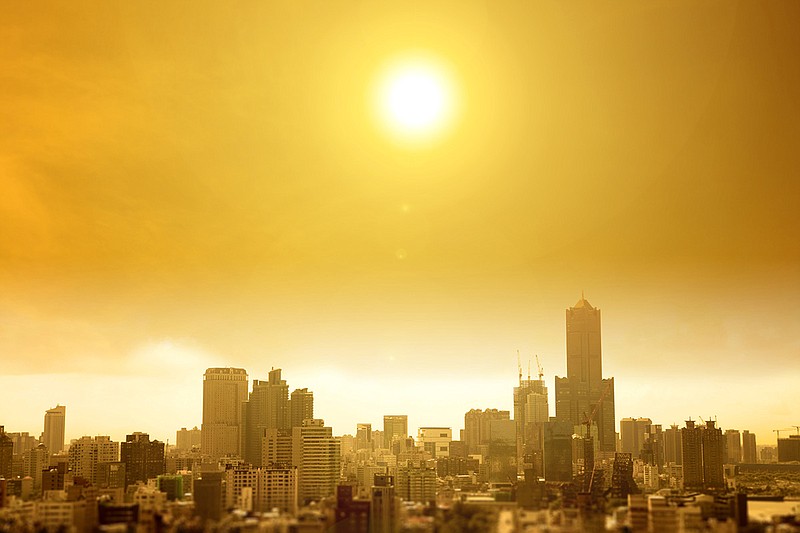The past five years, 2014 to 2018, are the warmest recorded in the 140 years that global temperatures have been monitored by U.S. and international agencies. June 2019 produced the highest global temperature ever recorded for that month. July is on track to be the hottest month ever.
Internationally, India and Pakistan have experienced a severe heat wave since May. Delhi reached a record 118°F on June 10. The city of Churu recorded 123° degrees. Temperatures in Pakistani cities ranged from 108° to 120°.
Alaska experienced record heat in early July with Anchorage and Miami sharing a 90° high. A massive heat wave earlier this month enveloped much of Central and Eastern U.S.
Physical activity in extreme heat, especially if combined with high humidity, increases the risk of heat injury - heat exhaustion or heat stroke - for any age. Recent fatalities include a 32-year-old former professional football player, who worked outside in the family towing business in Arkansas. Infants, children and older persons, especially those burdened with chronic heart and lung disease, are at increased risk. A room or apartment without air-conditioning or fans increases the danger of heat injury for occupants. Impaired consciousness due to alcohol or illicit drugs heightens the risk.
In urban environments, extreme heat combines with nitrous oxide in vehicular exhausts to produce ground-level ozone, which can cause cough, shortness of breath and irritation of lung tissue. Infants, children and elderly people are at increased risk. Ozone will worsen symptoms of pre-existing asthma, emphysema and bronchitis. Chronic exposure will lead to permanent lung damage.
Warming temperatures facilitate migration of disease vectors toward more temperate zones. Mosquito-borne illnesses include dengue, a virus which may cause mild to severe symptoms of fever, nausea and vomiting, and joint pain. Malaria, West Nile fever, viral encephalitis and Zika virus are also transmitted by mosquitoes. Warming temperatures in the U.S. have led to increased risk of Lyme disease since tick vectors survive in regions where they would previously have died in wintertime.
Water quality suffers in sustained heat increases. Parasites and bacteria increase in fresh water. Ingestion of these organisms may cause gastrointestinal symptoms of varying severity.
Raised water temperatures also favor rapid growth of harmful algal blooms (HAB), which may affect fresh water and ocean water. Certain HAB are bacterial species. Skin contact leads to rashes and itching. Inhalation of droplets can produce bronchitis. Swallowing contaminated water or consuming seafood, that is infected with HAB may cause symptoms ranging from gastroenteritis to paralysis. HAB growth is also promoted by runoffs from fertilized farmlands.
On a wider scale, global warming alters weather patterns, leading to drought and forest fires in some regions, while other regions suffer flooding.
Extreme climate change may damage a nation's ecosystem to the point that agriculture is no longer sustainable and water supplies are no longer adequate. Malnutrition follows. Eventually, a population has no choice but to attempt immigration.
A 2018 report from the World Bank Group lists Central America, Sub-Saharan Africa and South Asia as regions particularly vulnerable to climate-related chaos. Tens of millions of climate refugees could be forced to leave their countries in the next three decades.
To date, the Trump Administration has downplayed all aspects of climate change, including its impact on human health. The administration has announced its intention to withdraw from the 2016 Paris Climate Accord, in which 195 nations have pledged to reduce greenhouse gases and other factors that contribute to global warming.
Time to address global warming and its associated health risks is running out. A global coalition is crucial. The U.S. should be a leader in this effort. If the Trump Administration chooses to ignore the issue, Congress must step up and demand action. If Congress demurs, then it is up to you and me to lead the charge.
Contact Clif Cleaveland at ccleaveland@timesfreepress.com.

